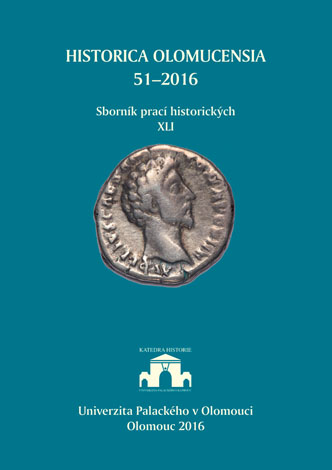Velká Británie a obchod s opiem v čchingské Číně na počátku 20. století
Great Britain and the Opium Trade in Qing China at the Beginning of the 20th Century
Author(s): Roman KodetSubject(s): History
Published by: Univerzita Palackého v Olomouci
Keywords: Great Britain; China; trade; diplomacy; opium; drugs
Summary/Abstract: The opium trade has played a crucial role in a relation of Great Britain and China since the beginning of the 19th century. The effort of the Qing government to stop this practice led to two conflicts in the course of the 19th century; Great Britain forced to sign unequal agreements during them. Opening Chinese ports for British trade led to the dramatic growth of trade with this addictive drug. However, the opium trade exhausted the country economically and at the same time, it led to the domestic production increase and growing number of opium smokers. Thus, the import of opium into China contributed to the deep moral decline of the society. This practice was criticized by many European politics and representatives of public life, who welcomed the edict of Emperor Guangxu from the year 1906 restricting the use of opium. This step of Beijing was followed by the British initiative and the attempt to limit the import of opium into the Middle Kingdom. Thank to this act, the consummation of opium in China was managed to be decreased during few years. The decline in domestic production led to the import decline, which was promised by the British in 1907. The height was the year 1913, when Indian opium import into China was defi nitely stopped. However, the Chinese revolution and the subsequent chaotic period turned the auspicious tide in following years.
Journal: Historica Olomucensia. Sborník prací historických
- Issue Year: XLI/2016
- Issue No: 51
- Page Range: 163-176
- Page Count: 14
- Language: Czech

